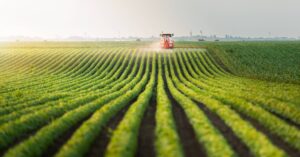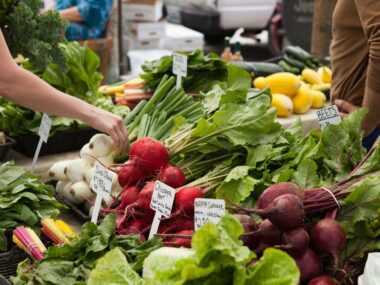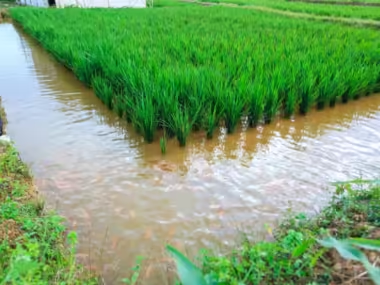Integrating livestock with crop farming, often referred to as mixed farming or integrated farming systems, offers numerous economic benefits. This approach maximizes resource use efficiency, diversifies income streams, and enhances sustainability. By combining crop cultivation and animal husbandry, farmers can create synergistic relationships that improve productivity and profitability. This article explores the economic advantages of integrated farming systems and how they contribute to more resilient agricultural operations.

Enhanced Resource Utilization
One of the primary economic benefits of integrating livestock with crop farming is the optimized use of resources. In a mixed farming system, waste products from one component can serve as valuable inputs for another, creating a more efficient cycle.
Nutrient Recycling
Manure as Fertilizer: Livestock produce manure, which is an excellent organic fertilizer rich in essential nutrients like nitrogen, phosphorus, and potassium. Applying manure to crop fields improves soil fertility, reducing the need for chemical fertilizers and lowering input costs.
Crop Residues as Feed: Crop residues, such as straw, stubble, and husks, can be used as animal feed. This reduces the cost of purchasing commercial feed and makes use of what would otherwise be waste products.
Improved Soil Health
Organic Matter: The incorporation of manure and crop residues into the soil enhances organic matter content, improving soil structure, water retention, and microbial activity. Healthier soils lead to better crop yields and reduced dependency on costly soil amendments.
Reduced Erosion: Livestock grazing on cover crops or crop residues can help control soil erosion by maintaining ground cover and improving soil stability.
Diversification of Income Streams
Diversifying farm activities through the integration of livestock and crops can provide multiple income sources, thereby reducing financial risk and increasing overall farm profitability.
Multiple Revenue Sources
Crop Sales: Farmers can generate income from selling crops such as grains, vegetables, and fruits.
Livestock Products: Additional revenue comes from selling livestock products, including meat, milk, eggs, wool, and hides.
Market Flexibility
Price Fluctuations: Agricultural markets can be volatile, with prices for crops and livestock products fluctuating due to various factors. Having multiple products to sell allows farmers to better withstand market volatility. When crop prices are low, income from livestock can provide financial stability, and vice versa.
Seasonal Income: Different agricultural products have varying production and sale cycles. Integrated farming ensures a more consistent cash flow throughout the year, as farmers can market different products at different times.
Increased Productivity and Efficiency
Integrating livestock with crop farming can lead to higher overall productivity and farm efficiency through synergistic interactions between the two components.
Complementary Activities
Crop-Livestock Interactions: Crops and livestock can support each other in various ways. For example, livestock grazing on crop residues or cover crops can help manage weeds and pests, reducing the need for herbicides and pesticides.
Efficient Land Use: Integrating livestock allows for more efficient use of land. Areas unsuitable for crop production, such as steep slopes or rocky terrain, can be used for grazing, maximizing the productive use of available land.
Labor Optimization
Shared Labor: Farm labor can be more effectively utilized throughout the year. During off-peak times for crop farming, labor can be redirected to livestock care, and vice versa, ensuring that labor resources are continuously and efficiently used.
Environmental Sustainability and Resilience
Economic benefits also arise from the enhanced environmental sustainability and resilience associated with integrated farming systems.
Reduced Input Costs
Lower Chemical Use: By utilizing natural fertilizers and pest control methods, integrated farming reduces the reliance on expensive chemical inputs, leading to significant cost savings.
Energy Efficiency: Integrated systems often require less energy input per unit of production, as the interdependent activities naturally balance each other, leading to lower energy costs.
Climate Resilience
Adaptability: Integrated farms are more resilient to climate variability and extreme weather events. Diverse crops and livestock can better withstand adverse conditions, ensuring more stable production and income.
Carbon Sequestration: Practices such as maintaining perennial pastures, agroforestry, and applying organic matter to soils enhance carbon sequestration, contributing to climate change mitigation and potentially opening up new revenue streams through carbon credits.
Case Studies and Real-World Examples
Numerous case studies demonstrate the economic benefits of integrated farming systems.
Smallholder Farmers in Africa
In many African countries, smallholder farmers practice integrated farming, combining crop cultivation with small-scale livestock rearing. Studies have shown that these farmers achieve higher productivity and income stability compared to those who focus solely on crop farming or livestock rearing. Manure from livestock improves soil fertility, leading to better crop yields, while crop residues provide a valuable feed resource.
Dairy-Crop Integration in India
In India, dairy farmers who also cultivate crops often use cattle manure to fertilize their fields. This practice has been shown to reduce fertilizer costs and increase crop yields. Additionally, crop residues serve as fodder for dairy cattle, reducing feed costs and supporting milk production.
Agroforestry Systems in Latin America
Agroforestry, which combines trees with crops and livestock, is practiced in various Latin American countries. This system enhances biodiversity, improves soil health, and provides multiple income streams from timber, fruits, crops, and livestock products. Economic analyses indicate that agroforestry systems are more profitable and sustainable over the long term compared to monoculture systems.
Policy Support and Future Prospects
Governments and organizations are increasingly recognizing the benefits of integrated farming systems and providing support through policies and programs.
Subsidies and Incentives
Many countries offer subsidies and incentives for practices that promote sustainable agriculture, including integrated farming systems. These financial supports help farmers transition to and maintain integrated practices, enhancing their economic viability.
Research and Extension Services
Agricultural research institutions and extension services play a crucial role in promoting integrated farming systems. By conducting research, disseminating knowledge, and providing technical assistance, these organizations help farmers adopt innovative practices that improve productivity and profitability.
Market Development
Developing markets for diversified agricultural products, such as organic produce, free-range eggs, and grass-fed meat, can enhance the profitability of integrated farming systems. Consumer demand for sustainable and ethically produced food continues to grow, providing opportunities for farmers practicing integrated systems.
Integrating livestock with crop farming offers numerous economic benefits, including enhanced resource utilization, diversified income streams, increased productivity and efficiency, and improved environmental sustainability. By creating synergies between crops and livestock, farmers can achieve greater financial stability and resilience. As agricultural practices continue to evolve, the adoption of integrated farming systems represents a promising pathway towards more sustainable and profitable agriculture. Investing in these systems can ensure a prosperous future for farmers and contribute to global food security and environmental health.










